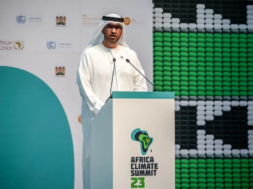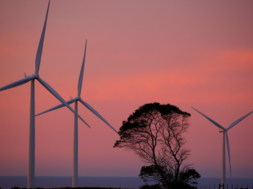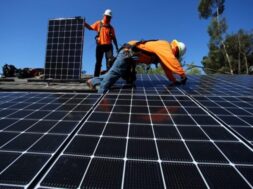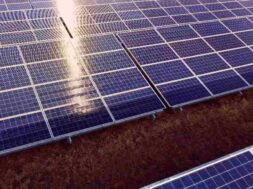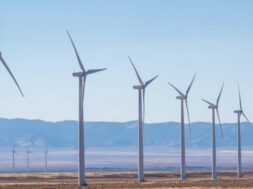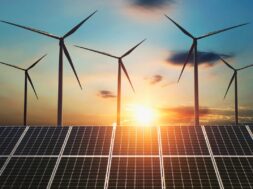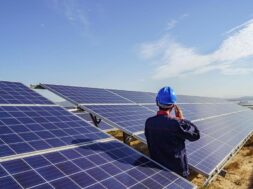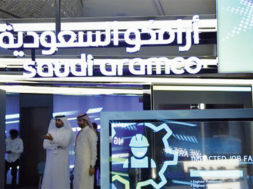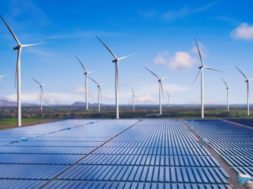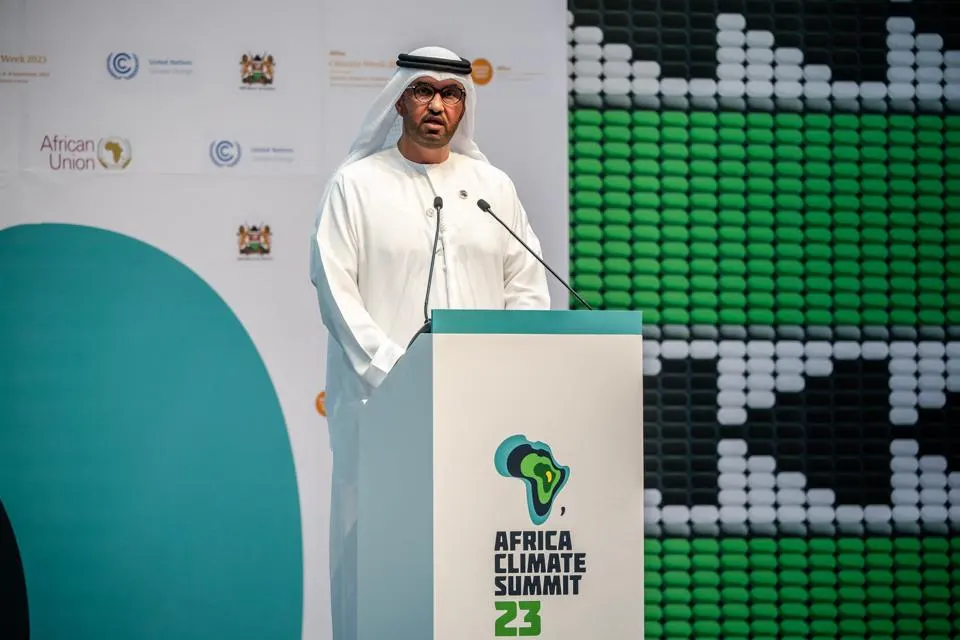
As global renewable energy investment levels are rising dramatically, there remains a considerable exception: Africa.
The year 2021 witnessed record levels of global renewable energy investment worldwide, hitting $434 billion. Of that amount, only 0.6% went to Africa, according to a report by the RES4Africa Foundation. This amount is lower than an already low standard: Africa has attracted only 2% of global renewable energy investment, the report noted.
Enter the United Arab Emirates, a relatively small nation of roughly 10 million people that has emerged as one of Africa’s largest investors. At the recent Africa Climate Summit in Nairobi, Sultan Al-Jaber, the COP-28 President-Designate and a senior UAE official, announced $4.5 billion in funding for clean energy projects across the continent.
UAE-based Masdar, one of the world’s largest clean energy investors, also announced a new initiative in partnership with Africa50, the pan-African infrastructure investment platform, to invest up to $10 billion in clean energy projects targeting 10 gigawatts of clean energy capacity by 2030. These announcements follow an initiative launched by the UAE last year, known as Etihad 7, to provide clean energy to 100 million people across Africa by 2035.
The CEO of Africa50, Alain Ebobisse, says the UAE’s recent renewable energy announcement is “a real game-changer for Africa’s climate resilience and a path to Net-zero.” Africa, he says, “needs tangible commitments toward scaling-up climate finance.” The UAE’s announcement reflects “a real and concrete proposal for Africa: a $4.5 billion finance initiative with a target of 15GW of renewable energy, and a defined consortium of actors that are responsible for driving action to achieve results.”
He hopes that the UAE and Africa50 strategic partnership “will help significantly increase the pipeline of bankable projects, to scale-up private investments and fast-track the delivery of sustainable infrastructure.”
All of this amounts to a jolt of confidence in Africa’s renewable energy prospects, specialists say.
“African countries feel that the West has failed them on climate finance,” says Aubrey Hruby, a non-resident senior fellow at the Atlantic Council and an advisor on African markets. “The UAE is stepping into this void in a meaningful way,” she says. “This shows that they take climate investment in Africa seriously, and this is an important signal ahead of COP-28,” she added.
The UAE will host the upcoming COP-28 UN global climate conference. Climate finance for the developing world will be high on their agenda, according to official statements. Al-Jaber has consistently chided Western, advanced economies for failing to fulfill their renewable energy investment pledges for the developing world, and has particularly highlighted the imbalance between Africa and the rest of the world on green investment.
“The 54 countries of Africa have done the least to cause climate change,” Al-Jaber noted in a speech in Egypt at the African Development Bank annual meetings in May.
“Yet, they are suffering some of the worst consequences,” he said. He also said that current climate finance flows to Africa are woefully inadequate, saying that the continent needs more than ten times the amount of current flows.
“Addressing the finance gap is a top priority for the COP28 presidency and my team,” he said.
Beyond renewable energy, the UAE has emerged as a major investor in Africa over the past decade. According to a study by White and Case, the UAE has emerged as the 4th largest investor globally in Africa after China, the United States, and Europe. From 2012-22, the UAE has recorded nearly $60 billion of foreign direct investment into the continent, according to FDI Markets and the study.
The UAE’s rising investment levels in Africa and across the emerging world has positioned them to play a mediator role in what is shaping up to be a contentious debate between countries of the global South who sometimes bristle at the advanced global North countries for what they view as hypocrisy on climate.
The global South argument notes that advanced economies of Europe and the United States built their growth on fossil fuels, and now have the resources and ability to move toward net zero emissions in the future, but developing countries who have yet to experience that same growth could be locked out of future development if fossil fuels are strictly limited.
Partly to mitigate these concerns, the world’s advanced economies pledged $100 billion per year in climate finance by 2020 to the developing world. This pledge was first made at the Copenhagen COP-15 summit. These funds – woefully inadequate to meet the challenge, critics say – have largely failed to materialize.
Africa has a tremendous opportunity to “leapfrog 20th-century infrastructure” through renewable energy investments, the Res4Africa report said, while becoming “a renewable energy powerhouse” and achieving its twin goals of greater access to energy and green industrialization.
Many specialists, however, note that the continent will still require fossil fuels for a considerable time in order to achieve development goals. Gyude Moore, senior fellow at the Center for Global Development and former Public Works Minister of Liberia, acknowledges the scale of the climate problem, but says that the insistence on Africa leapfrogging from fossil fuels to renewables is unrealistic and unfair. “No industrialized country has managed to transition to primarily renewable resources in the way this would require, and certainly none achieved industrialization without fossil fuels.”
Rahul Tongia, a non-resident senior fellow at the Brookings Institution, writes: “Development from a very low base inevitably means the poor must increase their emissions in the short term.” He further notes that these poor countries are such low emitters already that this should “fit within global emissions targets if high emitters reduce emissions quickly up front.” He concludes: “Unfortunately, the push toward zero has been interpreted as a prohibition on public support for new unabated fossil fuel energy. This is both unfair and unviable.”
Amid this debate, Hruby notes that “the UAE can play an important role as a bridge between developing countries and advanced economies. They are credible in both worlds.”
Gyude Moore agrees. “The world is looking for countries that can provide a third way,” he says. “The UAE can step into that role because of its close ties with Western capitals and its growing ties across Africa and emerging markets.”
The UAE has come under fire by critics as host of COP-28 because of its role as a major oil producer, but the UAE is also a major clean energy investor at home and worldwide. The UAE hosts two of the top ten largest solar energy parks in the world, and Masdar is one of the largest clean energy investors worldwide.
Al-Jaber began his energy career in 2006 as founding director of Masdar. He remains Chairman of the clean energy company, while also holding the role of CEO of Abu Dhabi National Oil Company (ADNOC), Minister of Industry and Advanced Technology, Special Envoy for Climate Change, and COP-28 President-Designate. He was awarded a 2012 “Champions of the Earth” prize by the United Nations for his work on renewable energy.
Paulo Gomes, chairman of the Pan-African Orango Investment Corporation, says, “The UAE announcements are an important step in the right direction and they set the right tone for the upcoming COP-28 summit in Dubai.”
Gomes notes, however, that a key aspect of Africa’s energy problem owes to the poor management of state utility companies. This needs to be fixed to remedy the energy poverty across the continent: some 600 million Africans lack access to electricity.
The RES4Africa report also notes that “Investments in grid and storage infrastructure are a prerequisite to the large-scale deployments of renewables in Africa.”
With the right infrastructure in place, the International Energy Agency estimates an ambitious scenario of an eight-fold increase in solar and wind energy in Africa by 2030.
